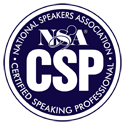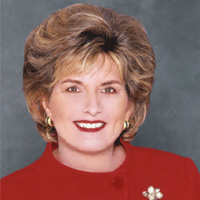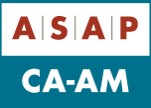
Do You Need A Coach?
In a recent article in The New Yorker magazine (click here for article: "Personal Best") a mid-career surgeon asks himself the question: "As an accomplished professional, do I need a coach?" To answer this question he first goes on a journey to understand the history and process of coaching, specifically in the United States.
In his research, Atul Gawande, discovers that the use of coaches among talented professionals was more common than he could have ever imagined. He seems surprised to find out that a sports star like Rafael Nadal has his own tennis coach and that Itzhak Perlman, the famous violinist, used his wife, herself a concert violinist, as his 'extra ear' for years to help him fine-tune his style and tempo. As he proceeds to interview professionals in all types of careers, he comes to realize that coaches provide the outside eyes and ears for people who want to continue to take their performance to the next level.
Certainly, in the last 10 years the field of coaching in the U.S. has exploded. Today there are executive coaches, life coaches, weight-loss coaches, financial coaches, marathon coaches, and health care coaches. So there is no excuse and no shortage of resources available to you if you believe you need help in moving off a plateau, getting out of a slump or just trying to figure out what really is keeping you up at night. As one of my clients, with whom I had not worked in several years, said in a recent email to me: "A few situations of late have left me short of my "A-game" and I need to do some work to get me back there."
And although I have been a business coach for years, I, too, have used coaches at various points of time in my career. I have had coaches to help me learn how to write and deliver speeches; I've had coaches to help me target my marketing messages and map out my social media strategies; and I've even had coaches to help me sharpen the edges of my own coaching style. But not all coaches are created equal. I have had coaches that I thought were a waste of time and money and coaches who truly helped me take my 'game' to the next level. But in every instance I did get a different perspective and learned something new, either about myself or about the coaching subject.
So the question posed in the headline of this newsletter "Do You Need a Coach?" is best answered by asking you three additional, but equally important questions:
- What is the question you want to answer? That is just another way of asking: "What is the issue you are trying to resolve?" or "What skills are you trying to learn or improve?" or "What is the result you are trying to achieve?" Sometimes you may even need a coach to help you get clear on that. In fact, the best coaches will ask and should help you to define that in your first session.
- Are you committed to taking actions and making changes? Whether you hire a coach to modify your golf swing or to help you learn how to 'work a room' or to become a more effective leader, the intent of coaching is change. So before you invest any time or money, you need to be honest with yourself about whether you really need to or want to make the changes necessary to help you get the new results you want. As Albert Einstein said: "The definition of insanity is doing the same thing over and over again and expecting different results." So a good coach will be an accountability buddy who expects you to take responsibility for changes that lead you in the direction you want to go.
- Are you willing to measure your success? When I was in college and studying psychology I thought I wanted to be a clinical psychologist. But I was saved from a career of endless 45 minute therapy sessions by my Dad who suggested that I first get a job in business before deciding on graduate school. What a genius! After 5 years working for Ohio Bell Telephone Company, where I learned the importance of measuring everything, I got my graduate degree in organization psychology and went on to become a leadership and team coach. From the beginning of that career, I have emphasized with my clients the importance of setting objectives and of measuring the success of whatever we are working on. So it is with individual coaching, "What gets measured gets done". You and your coach need to know what you are aiming for in order to know when you are making progress, when you are 'off course' and when you are ready to move off on your own.
So if you answered 'yes' to these questions, the time may be right for you to seek the assistance of a coach. And then you will be faced with another important question: How do I pick the right coach for me? Each aspect of that question is crucial. It is probably obvious that if you want a coach to help you grow your business, you need to find someone with experience and references that he, in fact, has helped others grow their businesses. But you don't necessarily need a coach who has owned and grown your specific type of business. Let me give a non-business example: Bela Karolyi, the famous Olympian gymnastics coach, has never been on a balance beam, but he has the expertise and experience that enables him to teach high performance techniques to young gymnasts and communicate and motivate them under demanding and stressful conditions.
The 'for me' aspect of that question relates to the chemistry and trust that needs to develop between you and the coach. A few years ago a colleague introduced me to a "trust formula", which I continue to reference. He said that trust is a function of credibility and empathy. And that the riskier the situation the more credibility and empathy you must demonstrate to the person with whom you are trying to develop trust. Here is an example of how that works with coaching. In this last year, I was hired by a woman lawyer who had considered two business development coaches before hiring me. She openly told me after our second session that she had not hired the other coach because he had been too aggressive in following up with her after their initial interview. Her thinking was "if this is the way he is trying to develop business with me, is this what he is going to tell me I have to do with prospective clients?" As a result of his behavior, she became wary of choosing him as her coach. He did not have credibility with her. This does not make him a 'bad coach', just a coach that did not mesh with her values.
So where are you going to find this 'right coach for you'? After deciding that he, in fact, wanted a coach, Gawande sought the assistance of a retired general surgeon with whom he had trained early in his career. They agreed that this new coach would first just attend a surgery, sitting at the back of the operating room. After the surgery he shared a long list of 'small observations' with Gawande, who seemed amazed at how, over the years, he had acquired habits that were not necessarily dangerous to his patients, but if altered, could avoid possible complications. Gawande had found someone to provide the external eyes and ears he needed.
While it may be obvious that in your own search for a coach you shouldn't spend time scanning the yellow pages or even searching the internet and picking the coach who has the highest SEO. But be equally as cautious about getting a referral from a colleague or a friend. Keep foremost in your mind the issue you need help with and the checklist of what type of experience and expertise is most important for you...what will give this person credibility with you.
And then look for the empathy factor. Does this person seem to convey that the coaching experience is more about YOU then it is about the coach showing how smart she is? Does this person have a coaching process and style that seems a match to your learning style? Some in the coaching profession believe that the TRUE SECRET to good coaching is the ability to ask great questions that pull the right answers from their clients. When I hear these coaches proselytize about this Socratic coaching methodology I am always reminded of our daughter Carylyn giving me feedback on my coaching style with her when she was about 6 years old. For those of you who know Situational Leadership, the Telling Style is pretty appropriate in the early stages of parenting. However, being a self-proclaimed successful coach, I thought that it was time I started changing my parenting style with her. So for a short while whenever she would ask me a question I would respond in some fashion: "Well Carylyn that is a good question. What do you think?" And then I invariably would get this response from her: "Mommy, if I knew the answer I wouldn't have asked you."...Duh! So I went back to answering her questions. Empathizing with your client means knowing how to really listen and knowing how to ask the right questions. But it also means tentatively sharing your 'hypothetical hunches' that may lead to breakthrough insights, making specific behavioral and strategic suggestions and providing other resources like books, associations, networking to colleagues, etc. when appropriate.
This newsletter has focused primarily on expertise-focused external coaching. However, there is a growing interest and trend in the field called peer coaching. While it is a relatively new and not widely used process in the corporate business world, it has been used extensively as a tool for teacher development in the primary and secondary educational system in the U.S. and with CEO peer advisory groups, like the Women President's Organization (WPO).
Peer coaching differs from executive coaching or mentoring, for example, which assumes that someone more experienced has the wisdom to provide recommendations, offer counsel and give advice. Peer coaching, on the other hand, primarily relies on two or more people, who are colleagues, providing one another with both emotional support and a structured process for self-discovery. In peer coaching there is a healthy balance between 'inquiry', that is asking relevant and provocative questions, and 'advocacy', offering experiential-based insights (not advice) of what has worked in similar situations.
I recently introduced the process of peer coaching to a group of field-based District Managers for a major pharmaceutical company. I asked each person to think about a goal they wanted to achive or a skill they wanted to develop over the next 30-60 days. They then needed to frame the goal or skill challenge in this way: "I want to get better at ____________. What ideas do you have for me?" When I said "Go" each person paired up with someone randomly and asked their question. Acting as a peer coach, their partner offered a 'peerspective' by answering "In my experience I have found that this idea worked for me....". We did 4 rounds of this so each person walked away with at least four ideas for consideration as an Action Plan. It was a powerful and efficient process that elicited these reactions:
"I got some great ideas from my peer coaches" and "We should do this regularly at our meetings".
So, if you need or want a coach, there are a wide variety of options available. Just make sure you find the right one for you!







